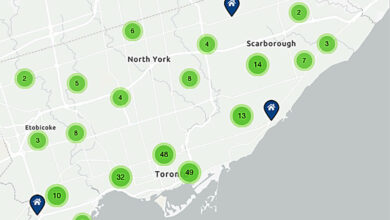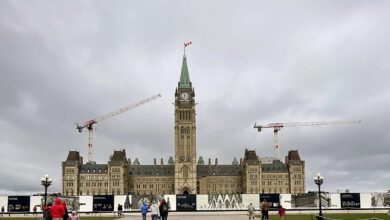Toronto Street Festivals: “Almost a hundred for the public to enjoy” – Michael Thompson – City Councillor
Taste of The Danforth, Dundas West Fest, Pride Toronto, Taste of Little Italy, Caribbean Carnival… you name it. There are hundreds of festivals going on in Toronto throughout the year.
For us, they are fun, exciting, create good moments to remember, offer the opportunity to discover and create a bond with other cultures. But how is it for the ones who put up these events? What are the struggles? Do they have enough support to keep the festivals coming out every year? This is what we tried to know more about, contacting Michael Thompson, city councillor for ward 21.

Milénio Stadium: What do you think that the main challenges are, when organizing these events?
Michael Thompson: Festivals are really important to the city of Toronto. We have almost a hundred festivals and we bring these events together for the public to enjoy. They provide great benefits to the social, as well as opportunities for entertainers to showcase their music. The challenge that is being faced is the cost of putting these festivals together: the permitting, policing costs, security, the logistics, advertising, promotion and so on. These festivals are only put on by community groups, who are not well financed, and it’s really important that we realize what the benefits are to the city and recognize what the challenges are. For a lot of community groups, the stress will have great impact, it’s very difficult for them.
MS: What is usually the most expensive part of the budget?
MT: It’s hard to define, it depends on the festival. There are different cost parameters in terms of specific things. For some it’s the entertainment, for some it’s the policing, for some it’s providing the logistics in terms of resources or even promoting the event itself. A lot of these events are staffed by volunteers, so there’s a lot of volunteer time that’s being given, but I think that, in general, the three issues around the costing of these events are the programming/entertainment, the policing and logistic costs of bringing in equipment and other types of resources that are necessary to stage.
MS: Is the organization able to get profits or cover the expenses for the festivals?
MT: I think that all of these organizations are not doing these events to make a profit. They’re really doing it to bring people together, define their community, expose and express the pride of their community and to allow people to socialize, to get out of their homes and to really enjoy our local community. Most of the people running these events are not looking to make profit, but they are hoping to cover their costs or, at least, to break even. If they don’t break even, it’s a challenge to stage the next year’s event because they would be starting in an operating deficit. So, everyone that I am aware of tends to want to break even. If they make a little bit of extra, they put it back into the budget for the following year.
MS: How does the city benefit from these events?
MT: Toronto is the most diverse city in the entire world and these events are being put on with great pride, great love and great desire to include all Torontonians, all of our citizens, all of our visitors. We know that the city benefits because people come, visitors and the local residents spend money, buy things… so it helps the merchants, it helps the community all around, it increases economic prosperity and it leaves a great impact on communities.
MS: The people who organize festivals, do they have enough support to make these events possible?
MT: One of the things that we should be looking at is how to encourage and how to support these types of activities. We know that they bring benefit to the city, both in terms of social inclusion harmony and financial benefit. For example, Pride brings in millions of dollars to the city, the Caribbean Carnival generates about four hundred million dollars. The challenge there is that those benefits, most part, accrues to the federal and provincial government, not the city government. Although, the city is where the event takes place, so I do believe that the city is trying its best to help in terms of promoting it on our website, some of them do receive some a small amounts of resources to help, receive assistance in terms of differing the cost of staging the event and so on. We have to look collectively at in terms of how governments can help these events and, of course, we have to have criteria to make sure that they make sense in terms of staging and the benefits of them. Also, we have some taxpayers saying “we don’t want our tax dollars being spent foolishly” and, in this case, it’s not. Because what we know is that these special events bring in more money. For example, the Taste of the Danforth, which happened recently, brought in millions and millions of dollars to the city’s coffer.
MS: Have these festivals been growing over the years? What makes that possible?
MT: Yes, indeed, festivals have been growing. They are very exciting, they’re fun, they are great for the public. We’ve seen an explosion in terms of the growth of festivals over the last ten years in the city of Toronto and there is more coming. What we have to do is figure out how we can encourage the festivals. We have beer festivals, the Just For Laughs festival, to mention a few, and a variety of others. They promote harmony and promote neighborhoods, promote a great city where people can engage in and enjoy themselves during the summer months and even the winter months.
Telma Pinguelo





Redes Sociais - Comentários